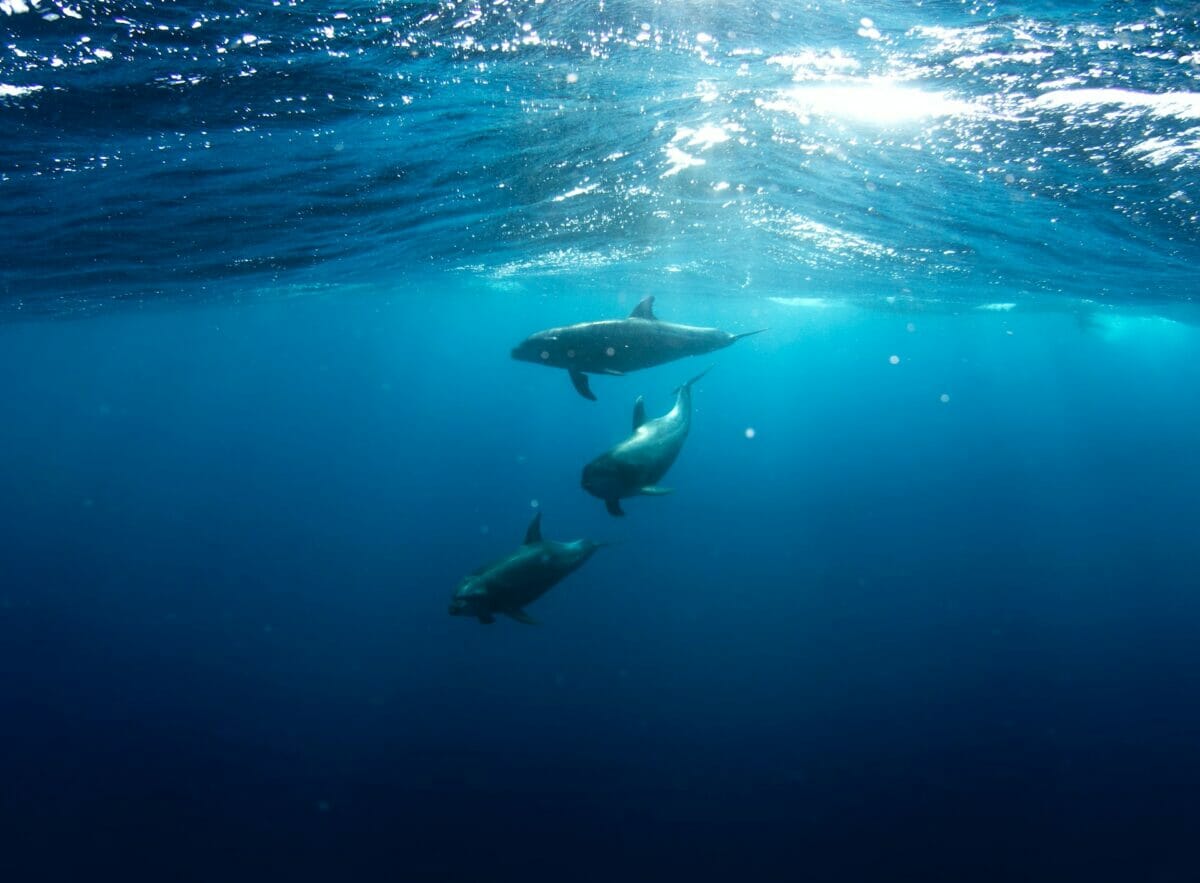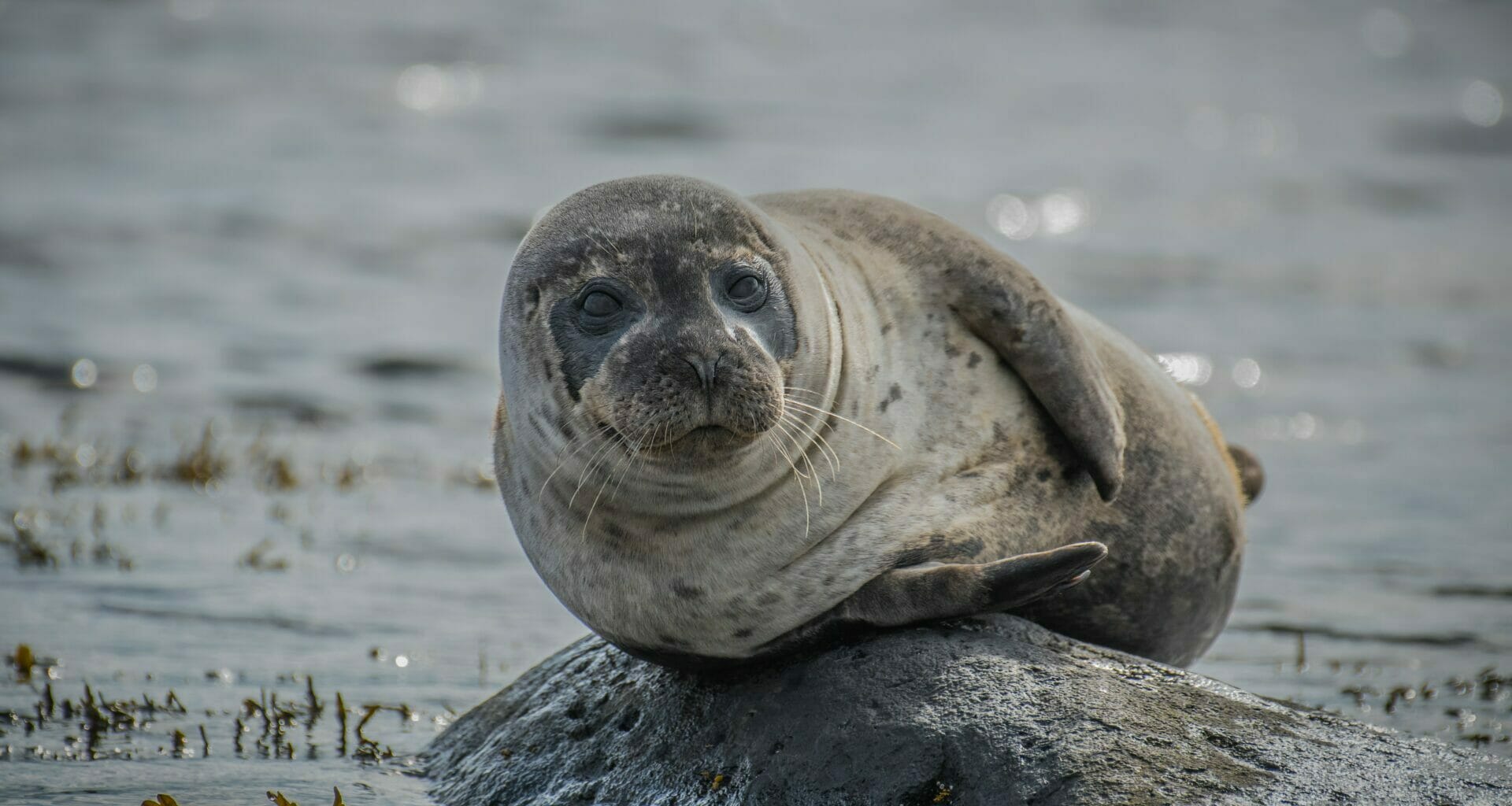A row has erupted between a private company and the Scottish Government over controversial devices called seal scarers which have been used by fish farms.
The dispute arose after Marine Scotland reported that The Scottish Salmon Company had received an enforcement notice and acoustic deterrent devices (ADDs) were removed from one of its farms.
ADDs, aka seal scarers, are used to deter seals from attacking fish farms by emitting a sound in the water they find unpleasant.
The farmed salmon industry claims these deterrents are critical for protecting fish stocks because seals kill around 500,000 caged salmon each year.
Critics of ADDs describe them as “sonic torture”, however. They claim they cause hearing damage and stress in dolphins, porpoises and whales – and therefore breach legislation to protect cetaceans.
There are alternatives for the salmon industry to use to protect fish farms from seals, critics argue, including the use of stronger nets.
Following recent controversy over the use of seal scarers, Marine Scotland has been carrying out inspections at Scottish fish farms to ensure that their use adheres to its aquaculture code of practice.
Section 2.2 of the code requires fish farmers to consult with Marine Scotland if they plan to deploy an ADD, and to obtain any relevant consents or to demonstrate that they will not harm marine mammals.
The code of practice must be complied with by anyone wishing to deploy an ADD even where a site is not stocked with fish
Government spokesperson
On the 18th October, 2022, Marine Scotland issued a report for the first six months of this year, following inspections at fish farms by marine protection vessels. Seventeen out of the 78 inspections found that ADDs had been fitted.
The report said that SSC’s Taranaish farm, at Loch Roag, had been issued with an enforcement letter after an inspection in April, and that ADDs had been “reportedly removed”.
However SSC told The Ferret that an ADD was not in use and the firm accused Marine Scotland of publishing a “factually incorrect” report and misrepresenting the situation.
A spokesperson for SSC said: “The unit was demonstrably not in use, and therefore Marine Scotland’s publication of the 18 October is factually incorrect. Marine Scotland was aware that all previously installed ADD systems were turned off and were being removed under a planned programme agreed with the supplier. All systems have since been removed under this planned programme.
The SSC spokesperson also claimed that the Marine Scotland report “lacks the necessary detail to accurately contextualise the issuing of the enforcement notice and therefore misrepresents the situation”. They added: “We are disappointed that they have pursued this matter despite our appeal, in which we confirmed the site was fallow, and gave evidence that the system was not transmitting in the period before, during and after the inspection.
The spokesperson said SSC was “further disappointed” that Marine Scotland published the notice without accompaniment of the inspector’s report and its letter of appeal which “provides context and evidence”.

In reply, a spokesperson for the Scottish Government said SSC’s claim that Marine Scotland’s report was inaccurate was “simply untrue”. They added: “On the 24 April 2022 officers made an unannounced inspection at one of the Scottish Salmon Company’s sites and found a deployed ADD device which had not been declared to the Marine Scotland directorate as required by the code of practice. An enforcement notice was issued, as demanded by legislation and all ADDs were removed.
“Industry was previously informed that details of these inspections would be made public and this occurred on 18 October 2022.”
The government spokesperson said all aquaculture sites were informed in writing, and through meetings with their industry association, that where a fish farm plans to deploy ADDs, they must “consult the Marine Scotland Directorate” and obtain any relevant consents. Companies must also demonstrate that the planned use of ADDs will not harm marine mammals.
“The code of practice must be complied with by anyone wishing to deploy an ADD even where a site is not stocked with fish,” the government spokesperson continued.
The continued discovery of ADDs on salmon feedlots comes despite repeated and recent claims to the contrary by the industry. We cannot trust the salmon farming industry to self regulate, in this area or others
Corin Smith, Inside Scottish Salmon Feedlots
Anti-fish farm campaigners urged the Scottish Government to take action against any firm using ADDs improperly.
Don Staniford, director of $camon $cotland, previously called Scottish Salmon Watch, said: “The Scottish Government must immediately remove all ADDs on salmon farms across Scotland and prosecute companies for noise pollution.”
Corin Smith, of Inside Scottish Salmon Feedlots, said: “The continued discovery of ADDs on salmon feedlots comes despite repeated and recent claims to the contrary by the industry. We cannot trust the salmon farming industry to self regulate, in this area or others. “
David Ainsley, a member of campaigning group Coastal Communities Network, said: “17 out of the 78 inspections found ADDs fitted but in 16 cases they were not activated. Why would a farm have ADDs fitted unless they intended to use them?”
Salmon Scotland, the body which represents Scotland’s farmed salmon industry, declined to comment.
Cover photo thanks to Pascal Mauerhofer















who would ever believe a word of what fish farms say!